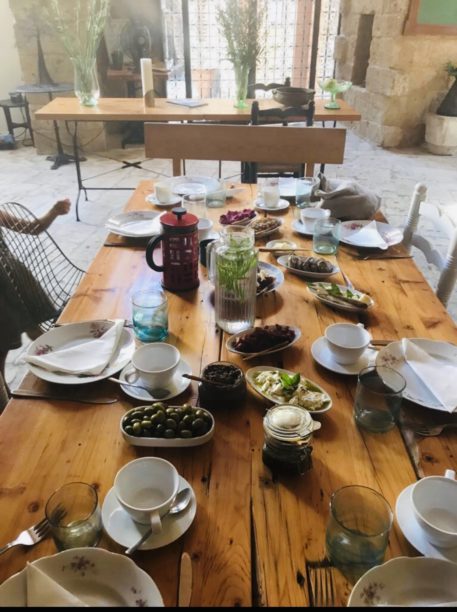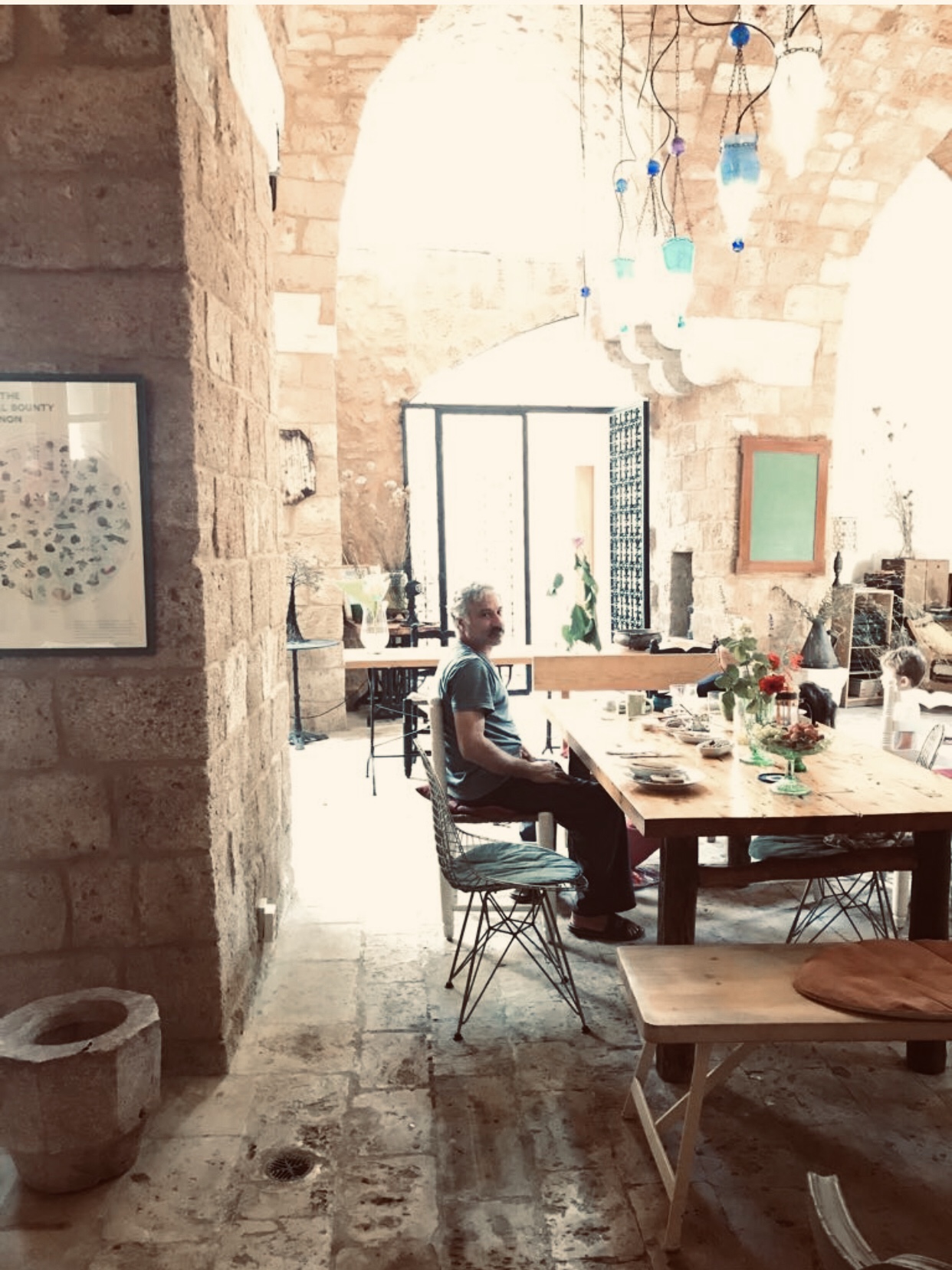Phoenician. Mamluk. Medieval. Modern. Lebanon’s second-largest city has had to endure conflicts, is impoverished but rich in beauty and food, and especially sweets. I drove directly from the Beirut-Rafic Hariri International Airport to Tripoli’s Abdul Rahman Hallab & Sons 1881, one of the most known sweet shops in town. Oriental sweet makers are central figures in the city’s culture, and the varied array of oriental sweets, an old tradition, never disappoints. Many of these often century-old family businesses can be found in the unforgettable and cinematic arcaded souks in the old city. Trying the specialty in the small sweet shops takes you back to the first time you tasted sugar as a child—jubilation and surprise.
Nabil Najjar, a yoga instructor and owner of Beit el Nessim, the old restored mansion converted into a six-room guesthouse in Mina—which means harbor in Arabic—was waiting for me so I bought my favorite sweets—Namoura, Znoud el Sett or Lady’s Arms, Chocolate Knefeh, Cheese Kenefeh, Maamoul with date, walnut and pistachio, Karbouj Assabeh served with an addictive silky natef, which is made with shilsh al-halawa, or soapwort or bois de Panama roots, similar to marshmallow spread—and headed to the Beit. The taste of the filo dough, syrup, rose or orange blossom water lingers long after you’ve eaten it.
The narrow alleyway leading up to Beit el Nassim is a journey through time. The house previously belonged to the respected physician Dr. Yacoub al Labban—there is a statue in his honor in the town square. When Nabil first saw the house, he immediately felt the positive empathetic energy, and knew this was the place for his project. He renovated it using recycled materials such as old wood, doors and headboards from antique shops in city, and combining different design influences from the East. The result is as eclectic as the owner.
 Nathalie Handal
Nathalie HandalIn this haven, a bewitching breakfast. Served inside or on the lovely rooftop terrace. Nabil experiments and improvises when he cooks. He is inspired by different cuisines, especially intrigued by Indian spices. On my breakfast table: apricot with ginger marmalade; quince jam and hint of lemon; muhammara (red pepper and walnut spread); flavored goat labnah or strained yogurt (water, Himalayan salt, labneh, Indian green pepper and a hint of curry leaves to get the fragrance moving); green chutney (avocado with pomelo, mint, coriander, olive oil and pepper); rose petal labneh (smooth and fresh and the sudden appearance of the pepper a bit later hits you); and olives from Koura, known for its olive tree cultivation and about half hour from Tripoli.
As I finished my coffee, the sunlight rested on the side of my face and one of my favorite images of the Lebanese American photojournalist and documentary filmmaker George Azar came back—a shepherd in a field of yellow poppies, which inspired my first poetry collection, The Neverfield. And his voice returned, come back soon, knowing I can’t stay far from these ruins, this sun, sea, these yellow fields, or Nabil’s breakfast table.
Beit el Nessim
Labban Street, El Mina, Tripoli
+961 6 308156, +961 6 200983, beitelnessim.com





